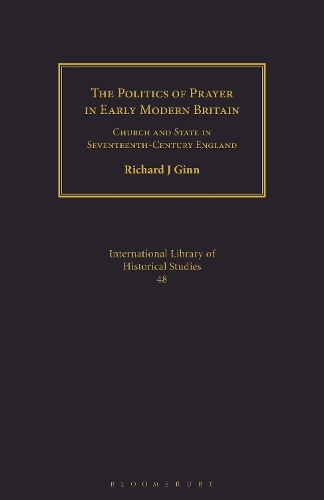
The Politics of Prayer in Early Modern Britain: Church and State in Seventeenth-century England
(Paperback)
Publishing Details
The Politics of Prayer in Early Modern Britain: Church and State in Seventeenth-century England
By (Author) Richard J. Ginn
Bloomsbury Publishing PLC
Bloomsbury Academic
23rd July 2020
United Kingdom
Classifications
Tertiary Education
Non Fiction
Religious social and pastoral thought and activity
Theology
248.32094209032
Physical Properties
Paperback
232
Width 138mm, Height 216mm
277g
Description
Prayer was regarded as an essential arm of the State and even a method of 'thought control' in early modern England. In the seventeenth Century, the period covered by Richard Ginn's study, Common Prayer dominated people's everyday lives at a national level, in communities and congregations, as well as privately in households. Ginn demonstrates how prayer represented the search for pattern, order and purpose in and between these different layers of society in a period when England was struggling to come to terms with political and social turbulence, rocked by the violence of the Civil War, unease over the Commonwealth and the uncertainties of the Restoration. Ginn argues that the importance of Prayer as a stabilizing force during these times of instability cannot be underestimated; it fostered a sense of national identity, an integrating principle at a vulnerable time for England, putting the social order in a greater context under a sovereign God.
Author Bio
Richard Ginn completed research on Prayer in Early Modern England at Durham University. He is an Anglican clergyman in the diocese of St Edmundsbury and Ipswich.
